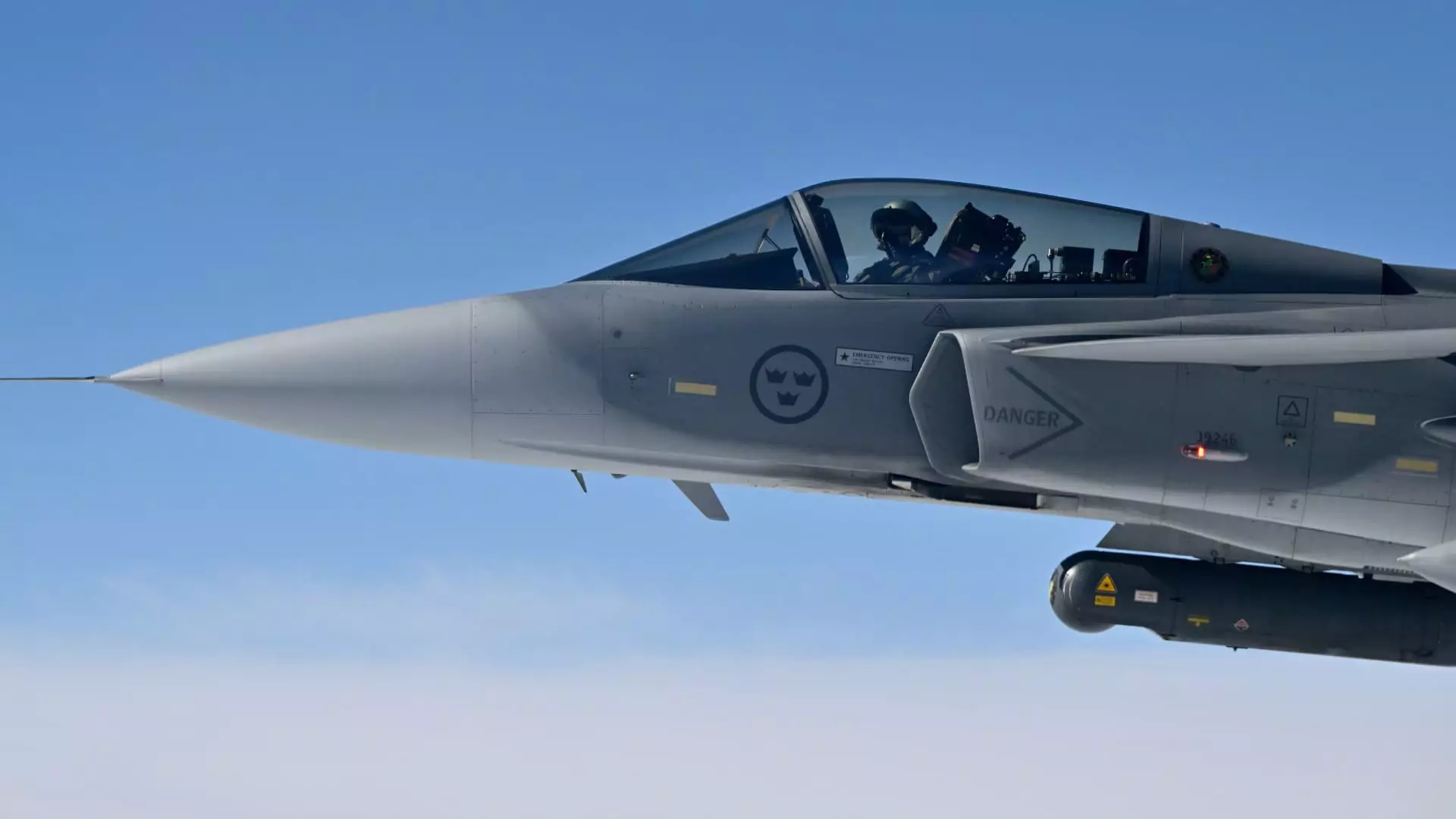The recent surge in defense stocks like Saab might seem like a promising sign of an awakening Europe, but this optimism is fundamentally flawed. While profits soar, bolstered by political will and increased budgets, this rally obscures a troubling reality: reliance on heavy militarization risks diverting attention from underlying societal issues. Boosting defense spending isn’t an unequivocal benefit; it risks fostering a security panic that might entrench conflict rather than resolve it. Instead of addressing root causes of insecurity—such as inequality, social fragmentation, and diplomatic failures—Europe appears fixated on expanding its armaments industry. This approach unwittingly perpetuates a dangerous cycle, one where the pursuit of quick security benefits undermines long-term stability and social cohesion.
A Defense Industry in a Theatrical Rise
Saab’s staggering 131% increase in share value since the start of the year exemplifies the booming defense sector. Yet, this isn’t a testament to genuine peace or diplomacy; it is a reflection of the industry’s exploitation of geopolitical fears. The European Commission’s plan to funnel €2 trillion into rearmament initiatives is more than mere policy; it’s an ideological shift privileging military solutions over diplomatic engagement. This escalation serves the interests of defense corporations rather than the broader populace, turning the political landscape into a battlefield for military contracts and profit motives. The narrative of “Europe’s era of rearmament” sounds patriotic and protective, but it often veils a troubling expansion of militarized power that could escalate regional tensions further.
The Illusion of Self-Reliance in Security
The statement by Saab’s CEO, hinting at a “dramatic ramp-up” in activity, underscores a disturbing reliance on weapon sales as a metric of national and regional strength. European countries are told that increased military investment signifies unity and resilience, but this assumption is flawed. True security cannot be purchased; it is cultivated through diplomacy, social trust, and robust international cooperation. The emphasis on expanding defense industries feeds into a competitive arms race mentality, which risks igniting conflicts rather than resolving existing ones. Meanwhile, NATO’s push to raise defense spending to 5% of GDP echoes a militaristic mindset rooted in fear rather than strategic necessity. Europe’s reliance on military might oversimplifies complex security challenges, often turning them into industries of endless profit rather than opportunities for meaningful peacebuilding.
Questioning the Cost of Militarization
It’s vital to scrutinize whether Europe’s heavy investment in rearmament genuinely enhances safety or merely masks an inability to foster genuine diplomatic relations. Behind the headline figures of profit growth and defense budgets lies a destabilizing truth: militarization fosters suspicion, arms proliferation, and cycles of violence. Politicians and defense firms profit from fear, perpetuating a narrative that more weapons equate to greater security. Meanwhile, genuine social and political issues—inequality, marginalization, climate change—remain underfunded or ignored amid the collective panic to “defend” Europe. Should we not instead channel these resources into building a more inclusive, resilient society capable of withstanding security threats without endless escalation?
In the end, Europe’s defense boom, propelled by corporate interests and political posturing, is a perilous illusion. Relying on weaponry and military strength to guarantee safety is a shortsighted strategy that risks plunging the continent into deeper turmoil. True security arises from social justice, diplomatic engagement, and international solidarity—not from the relentless expansion of the defense industry.

